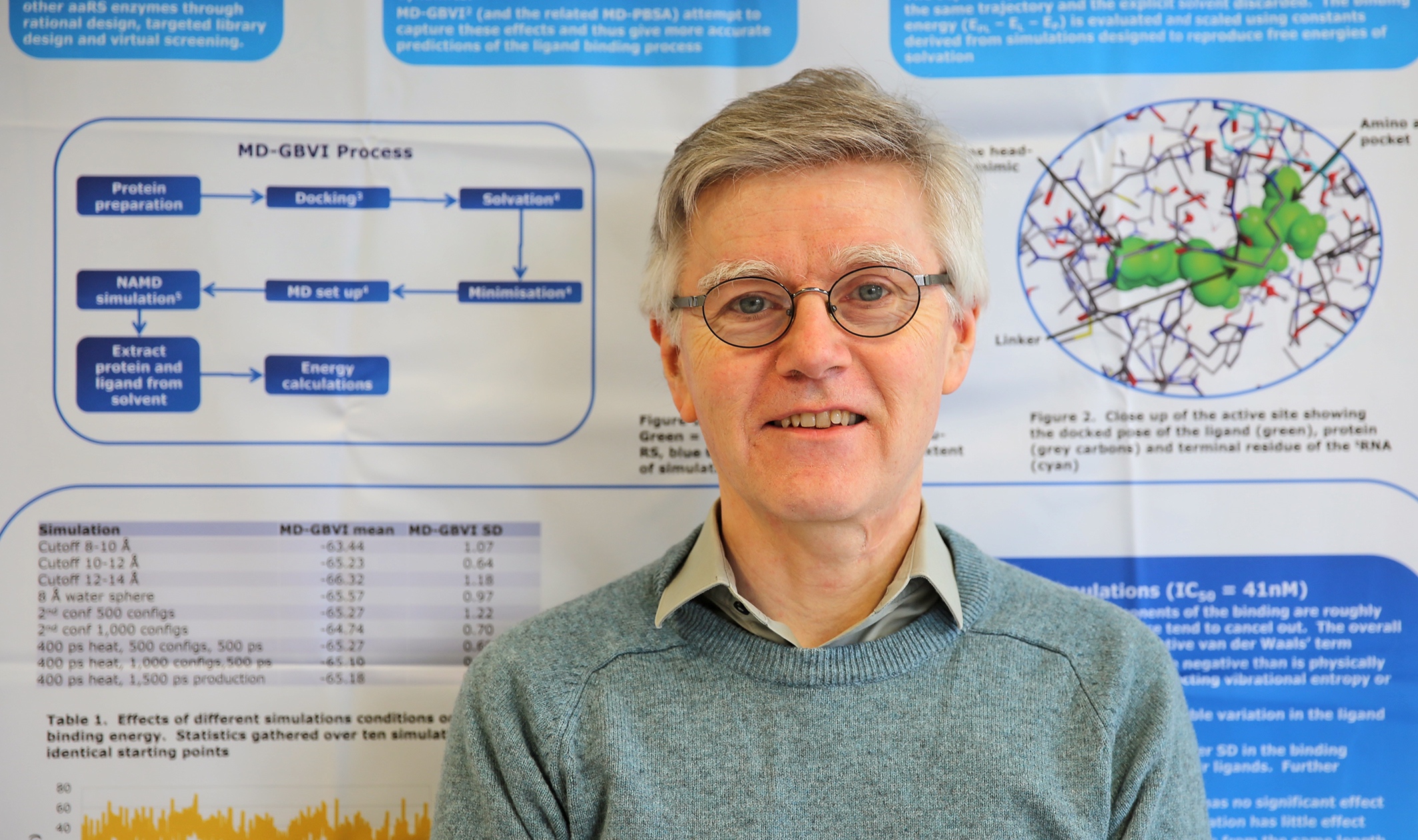Five minutes with Paul Finn at Oxford Drug Design
February 12, 2018

One of OCFI’s current residents – Oxford Drug Design – is at the forefront of research to find new antibiotics. We spoke to Paul Finn, computational chemist and CEO about their novel antibacterial programme…
Oxford Drug Design (ODD) is a small biotech company that focuses on identifying new antibiotics to treat bacterial infections. The frequency of antibiotic-resistant infections is increasing, leading to a rise in deaths from antibiotic-resistant bacteria. It’s important work. As Paul says, “The whole of modern medicine is built on antibiotics.”
We need antibiotics to treat serious infections like pneumonia but they’re also essential for patients undergoing routine surgery, like hip and knee replacements or removing an appendix. In a drug-resistant world, many aspects of modern medicine will simply become impossible. We will face the same risks as we did before Alexander Fleming discovered penicillin in 1928. In the European Union alone, drug-resistant bacteria are estimated to cause 25,000 deaths and cost more than $1.5 billion every year in healthcare expenses and productivity losses.
Oxford Drug Design is on the case and hunting for new drug compounds that could eventually end up on the pharmacist’s shelf. They do this by computer-aided drug design. The company’s USP is the software they’ve developed to design novel chemical compounds that can be used in the development of antibiotics. It works like this: ODD analyse existing data by rapid virtual screening. They have an incredible database – the Scopius compound database – with over 100 million unique molecules to help them do this efficiently and quickly. Using their state-of the-art software, they then design a new compound – one that interacts with the bacterial target. If they come up with a good fit, an external lab makes up the compound and it is then tested in another lab. Chemical compounds that are found to work come back to ODD to ‘optimise’ – that means tweak to you and me.
Paul says, “It’s an iterative process. Not only does the compound have to ‘fit’ its bacterial target but it’s got fulfil a lot of other criteria too”. For instance, the drug developed has to be easily absorbed from the stomach, be stable in blood, and reach the right infection site in the body. Not only that, it has to be cheap and easy to manufacture. Ultimately, Oxford Drug Design hopes to have a chemical compound that works as an antibiotic drug that they can licence to a big pharma company, like GSK. Sounds simple, eh? But there are several hurdles to overcome.
Firstly, these kinds of drugs are technically hard to develop. Only ten per cent reach preclinical trials and, out of those ten, only one results in a successful drug. And, Paul says, “The cost of developing a drug to market is in the region of £800 million and takes from twelve to fifteen years”. But crack it and the rewards are potentially huge as the need for new antibiotics becomes more and more pressing.
Oxford Drug Design was founded (named InhibOx at the time) in 2001 by Professor Graham Richards, ex-chair of the Chemistry Department at the University and its first office was in the department’s basement. InhibOx was initially a contract research organisation for chemical companies but the team realised that they had something valuable. With some EU grant money behind them, InhibOx relaunched as a biotech discovery company called Oxford Drug Design in the middle of 2017. They are making good progress with optimising the compounds they’ve developed so far, but this obviously requires significant expenditure, and Oxford Drug Design will need to raise additional finance in the next twelve to eighteen months. Paul says: “I am confident that the progress we have made will enable us to raise further VC investment and obtain grants, and I am hopeful that we will keep access to EU funding mechanisms in place after Brexit.”
In their earlier incarnation, Oxford Drug Design was based at the Trust’s first innovation centre at Mill Street but they’ve been working out of OCFI for the last four years. It works well for them. We hope the solution to the antibiotics crisis is found here, in Oxford, under our roof.
For more information on Oxford Drug Design, see here.
If you’d like to be interviewed for our head-to-head series, email Georgina Matthews on [email protected]



